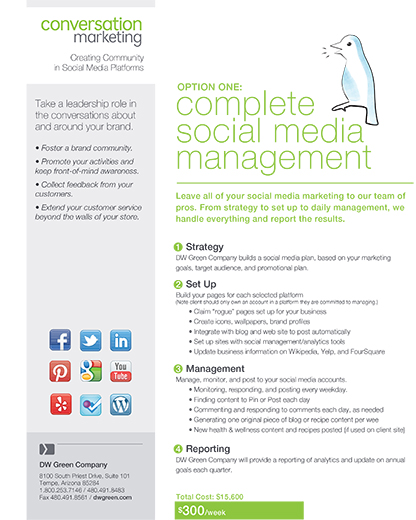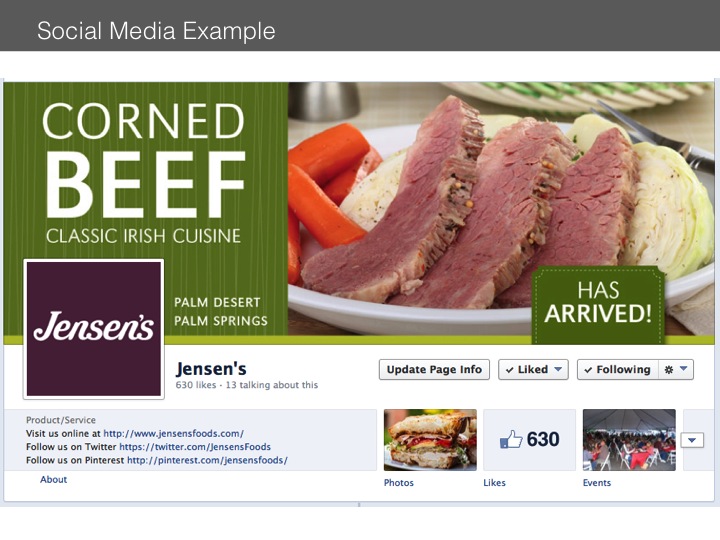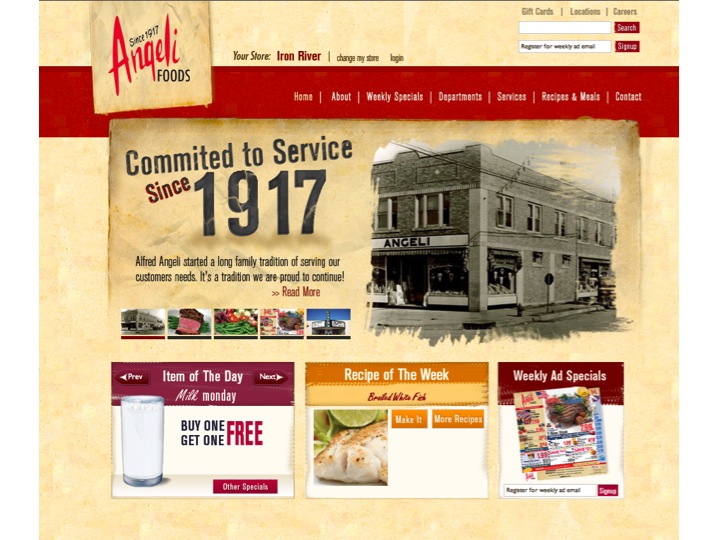DW's Blog
Integrity
by DW Green — September 3, 2015
“To thine own self be true” writes William Shakespeare in Hamlet. “Let your conscious be your guide” the Blue Fairy tells Pinocchio and then asks Jiminy Cricket to serve as Pinocchio’s conscious. Integrity is an important and powerful quality. To be referred to as a person of integrity is the ultimate compliment. I have come to realize that my life experience is about the journey toward wholeness, and to seek wholeness, is to live from a place of integrity. To me, conscious is the psychic energy of awareness. Conscious is the alarm that goes off when integrity is at risk, when wholeness is splintered. “The meeting of our inner and outer lives is called integrity, and the health of our integrity often determines our inner strength and resilience in meeting the outer world. This is the purpose of integrity, to balance the outer forces of existence with the inner forces of spirit,” Mark Nepo, The Exquisite Risk. One of the most useful definitions of integrity comes from Rabbi Jonathan Omer-Man: Integrity is the ability to listen to a place inside oneself that doesn’t change, even though the life that carries it may change. So living from integrity is when our actions, our outer life are in sync with our inner life; our heart, our soul, the essence of our being. Businesses too must live from integrity. When the actions of a business are incongruent with their beliefs and values and essence, crises will inevitably arise. The cons...read morePersonal Packaging
by DW Green — August 26, 2015
Yes, packaging and product presentation are very important. People buy with their eyes. And eat with their eyes. Strong visual cues are crucial to sales. Personal packaging is imperative too. Handsome, authentic uniforms and appropriate grooming standards say a lot about the professionalism, expertise and approachability of store employees.The internal “packaging” of associates is essential too. A smile versus a frown, a pleasant friendly tone versus a grumpy agitated one and a happy demeanor versus a dispirited disposition can make all the difference in delivering exceptional customer experience. Wise leaders treat their staff with courtesy, respect and dignity. They honor them for who they are and encourage them to be themselves. When individuals are acknowledged and feel that they are “heard” their job performance excels.We are all unique with our own special gifts and skills. Life is short; we can all make a difference in the world!...read moreLetting Go
by DW Green — August 20, 2015
Many of us feel we are our job, possessions, achievements, and relationships. This is how we know ourselves. If we lose one of them, we feel we have lost part of ourselves. Somehow we have not identified with the basis of all life, which is constantly moving, changing, growing. In order to expand our sense of selves it is necessary to stop fighting and resisting life, to become willing to let go.But, whether or not we want to let go, life itself decides for us. Change comes in its own time, both giving and taking things away. When this happens, many suffer greatly from this sense of loss. A usual response is to hold on tighter. By fighting change this way we are insisting that life meet our particular demands, fulfill our needs and expectations. A battle is set up. Much energy is squandered.So it’s important to learn to Let Go, not only in our personal life, but in our business life as well. And this is especially true for leaders of organizations. A long time client of ours from the Pacific Northwest sent me an article on Letting Go. It’s an excellent article and speaks very highly of the person who sent it to me as well as his leadership qualities.May 18, 2015 / by Scott Mabry
“An attachment isn’t a fact. It is a belief…”
~ Anthony De Mello<...read moreMistakes Are Learning Experiences
by DW Green — August 12, 2015
Ben Franklin once said “In this world nothing can be said to be certain, except death and taxes.” I would add mistakes to that list of certainties! All three are inevitable! Though it seems that we view our personal mistakes much differently than mistakes made by others. Especially those mistakes made by our subordinates. Why is that? Since we all make mistakes shouldn’t we extend the same forgiveness and understanding to our employees that we accord ourselves for our errors?Unintentional mistakes just happen. Accept that reality. Identify the cause and work to improve the process. The notion that the same mistake will never happen again is erroneous. Like stubbing ones toe, one cannot guarantee the same mistake will never happen in the future. Consider, for example, the dozens of oil spills in the U.S. over the past 25 years.What’s more troubling to me is when employees become fearful of making mistakes, for fear of reprisal or retribution. When people are afraid of making mistakes, they shut down; they won’t take risks or try new ideas. We learn from failure not from success. It’s best to treat mistakes as a learning experience. Discuss, learn and move forward.“Freedom is not worth having if it does not include the freedom to make mistakes.” —Gandhi...read moreLeadership
by DW Green — August 6, 2015
Leadership can be thought of as a capacity to define oneself to others in a way that clarifies and expands a vision of the future. Skilled leaders accomplish great things and inspire others to grow in responsibility and skills. I believe that growth and development of people is the highest calling of leadership. Leaders give their best in whatever job they’re doing. Any of us can take on leadership roles and qualities just by doing our jobs in a dependable way and encouraging others to share in and help us in attaining a worthwhile vision.The following leadership quotes emphasize the importance of perseverance, service, and reliability.JOHN QUINCY ADAMS: If your actions inspire others to dream more, learn more, do more and become more, you are a leader.KENNETH BLANCHARD: The key to successful leadership today is influence, not authority.RALPH NADER: I start with the premise that the function of leadership is to produce more leaders, not more followers.JOHN WELCH: Good business leaders create a vision, articulate the vision, passionately own the vision, and relentlessly drive it to completion.JAMES BUCHANAN: The test of leadership is not to put greatness into humanity, but to elicit it, for the greatness is already there.I hope these leadership quotes have given you some important insights....read moreThank You
by DW Green — July 31, 2015
Sage commentary by Mr. Zack…Mr. Adam Zack. Affectionately known as Mr. Z, Beardless One or sometimes just Bob. Treating everyone with honor and respect is powerful and responsible behavior. Whether it’s a customer, a vendor, a team member, a subordinate or a superior, everyone is deserving and worthy of being treated with respect and simple kindness. Our society in general could use an infusion of respect and kindness towards each other. Even when we disagree or need to discipline, it can be done in a respectful and honorable way. Acknowledgment is another meaningful practice. “Thank you Judy for a job well done.” “Thank you Becky for that always present smile.” “Thank you Andrew for your positive and enthusiastic interaction with that customer.” “Thank you Adam for that outstanding Blog!” There are always a jillion things you can acknowledge someone for. And the cool thing is, the acknowledger always feels better about himself/herself for doing it. We’re all in the same ship traversing the sea of life. Being mindful of the golden rule in our everyday behavior and actions—make it a way of Being. Do unto others, as you would have others do unto to you....read moreFor A Guy Who Smells He Sure Is Popular
by DW Green — July 23, 2015
Humor should be a prerequisite to life’s lessons. It helps keep us sane; keeps us from taking ourselves too seriously. It calms our apprehensions and puts life’s imperfections into perspective. Humor is the diversion we need to get us through the trials and tribulations of our lives. Humor is the ability to laugh at ourselves and only to laugh with others. Humor is the defining characteristic between the pessimist and the optimist. Humor may be defined as sudden whim, but being whimsical is not all bad! Here’s one of my favorite ad themes. Sure garlic isn’t a high tonnage item, but there are many items that be tied into a garlic promotion.For A Guy Who Smells He Sure Is PopularAnd the winner, by a nose, For Most Popular Seasoning is…(drumroll please) …Garlic!” The thunderous applause from people everywhere drowns out the boos and hisses from jealous spices like oregano, cumin and tarragon. After all, garlic is hardly Mr. Congeniality, loudly announcing himself throughout the house at mealtimes, or smack in the middle of a kiss. He’s not terribly photogenic, with his short, stocky body and unkempt goatee. And he thinks he can kick any recipe in town. Is it possible that this bulbous bully has a Napoleon complex?Maybe. But despite garlic’s egocentric qualities, we have all grown to love him. After all, garlic has been adored for centuries, not only for its robust flavor, but also its magical and medicinal qualities....read moreThoughtfulness is Key to Profitability
by DW Green — July 1, 2015
Thoughtfulness. A simple enough concept; yet not always easy to practice. Once mastered, however, it is one of the greatest gifts you can give; and not just to friends and loved ones on special occasions and holidays…but to everyone, always. And, as you establish yourself as thoughtful to others, they’ll go out of their way to please you back. Thoughtfulness is a habit; internalized, it becomes a way of life, a part of our being. It’s always cool when a renowned business expert validates a belief. Here’s a short article on thoughtfulness by Tom Peter’s.Service: on Thoughtfulness
—Tom PetersI think it was the recession—the great recession, or whatever you want to call it—that really got me thinking about this. You know, when times are very tough and tough decisions have to be made, as they certainly have to be made, fundamental human decency toward one another is arguably more important than at any other time.And somehow or another, the word thoughtfulness came into my mind. And I like the word thoughtfulness. And then the next step in this process—and I’d ask you to think about this—many of you, most of you, probably have some kind of value statement. Put the employee first, put the customer first, put the shareholder first, whatever it is. And so, I am really literally asking you—it’s probably only got, like, five lines, right?—I want one of those five lines, or six lines, to say—precis...read more
The Purpose of a Business is to Get and Keep a Customer
by DW Green — June 25, 2015
In view of Adam’s Cyber Monday blog and the resistance he’s encountered with respect to its markdown, considering the program from a different perspective might prove beneficial. Very simplistically a business must produce revenue in excess of costs in sufficient quantity and with sufficient regularity to attract and hold investors in the enterprise, and must keep at least abreast and sometimes ahead of competitive offerings.There is a wonderful book, The Marketing Imagination by Theodore Levitt. It was first published in 1983. Mr. Levitt was an economist and professor at Harvard Business School. He proposed a definition for corporate purpose: Rather than merely making money, it is to create and keep a customer. His book resonated with me. I believe that a business leader’s top priority is sales and the company’s ability to attract and keep customers. Sometimes this requires selling product at or below cost.Thinking about marketing through the lens of creating customer loyalty rather than merely generating profits has proven transformative for many business leaders. Theodore Levitt’s view of corporate purpose emphasized that the real objective should be to attract and retain customers, a concept central to long-term success. This approach aligns with the StoryBrand Framework, which focuses on clarifying messaging by positioning the customer as the hero, with the brand...read morePresence
by DW Green — June 19, 2015
Listening is an extremely important quality. Being “present” in a conversation is the biggest gift you can give to another person. When someone feels that they have been “heard” they feel accepted and appreciated. We can all learn when we truly listen. The listening article below by Chris McGoff is excellent. I hope you it enjoy it as much as I do. I read it often to remind myself to be present in my conversations.Stop Listening
Make yourself available.
by Chris McGoff
My expected guest was an executive of a major enterprise and one of my most important customers. I requested the meeting with her to solicit her feedback on how my team was doing and to better understand her priorities and pressing issues—to hear how we could enhance our value to her. I also needed to ask her a favor. I had a big agenda, and the stakes were high. Too much was on the line merely to listen attentively. I was there to be a listening from nothing deeply.You have likely internalized the value of listening. I now challenge you to stop listening and start being a listening from nothing deeply. How does this differ? The changes are subtle; the shifts in behavior, small. But the response will be staggering: People...read more






















































